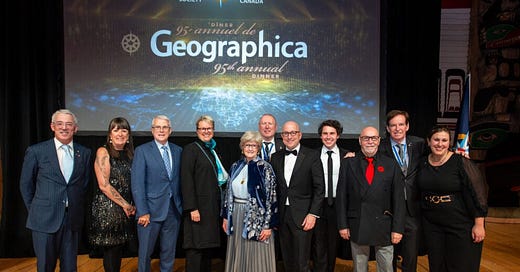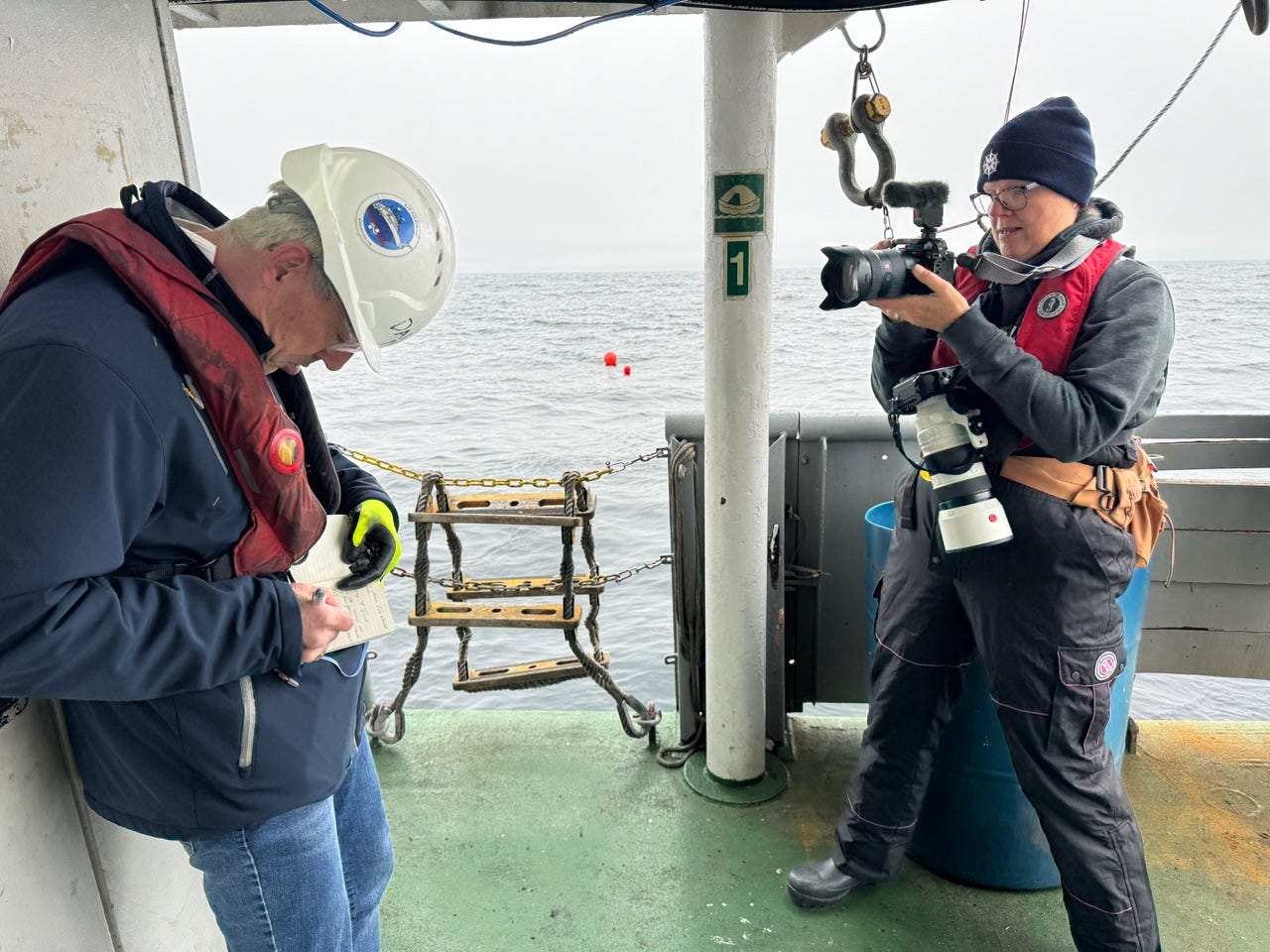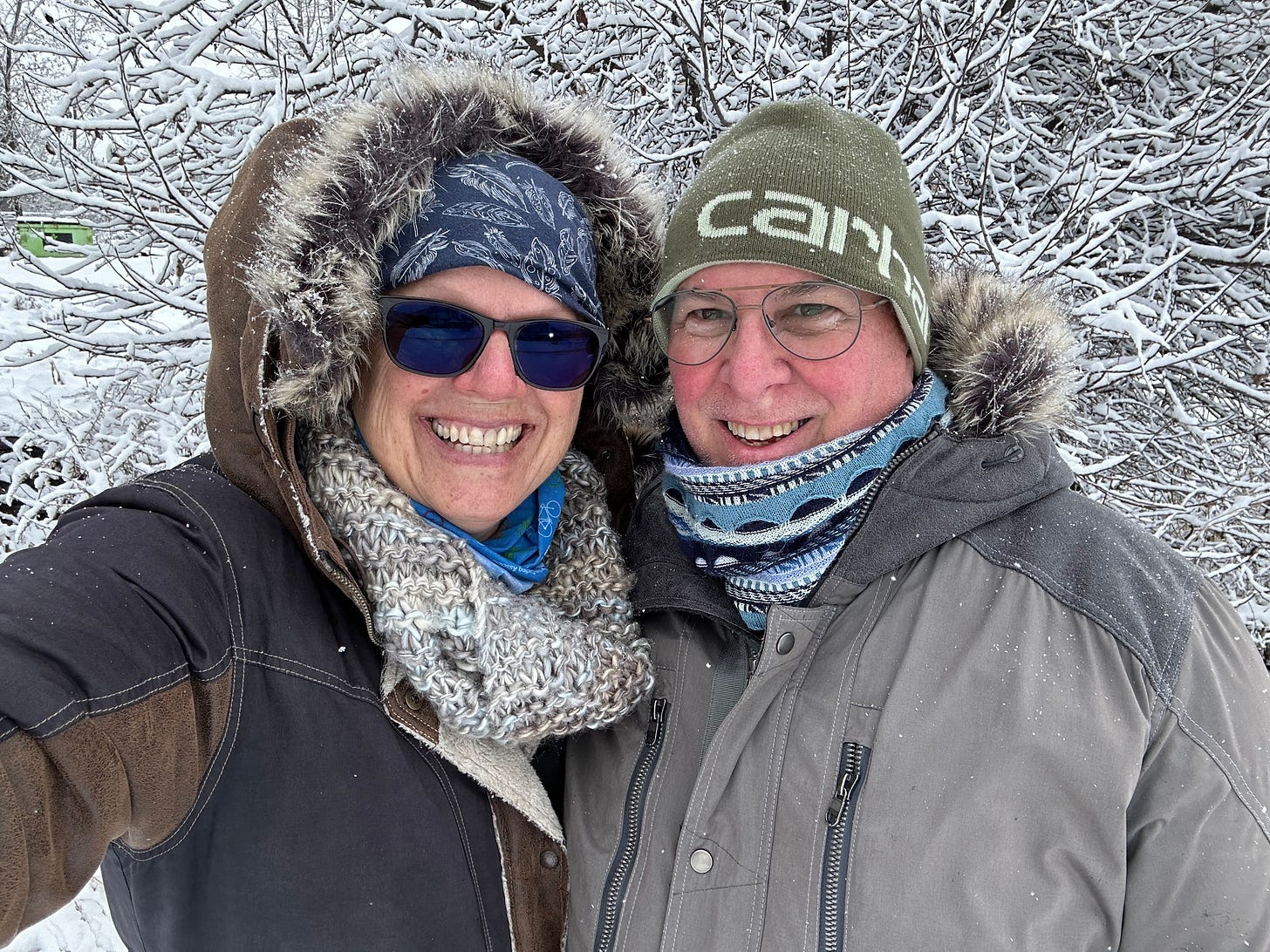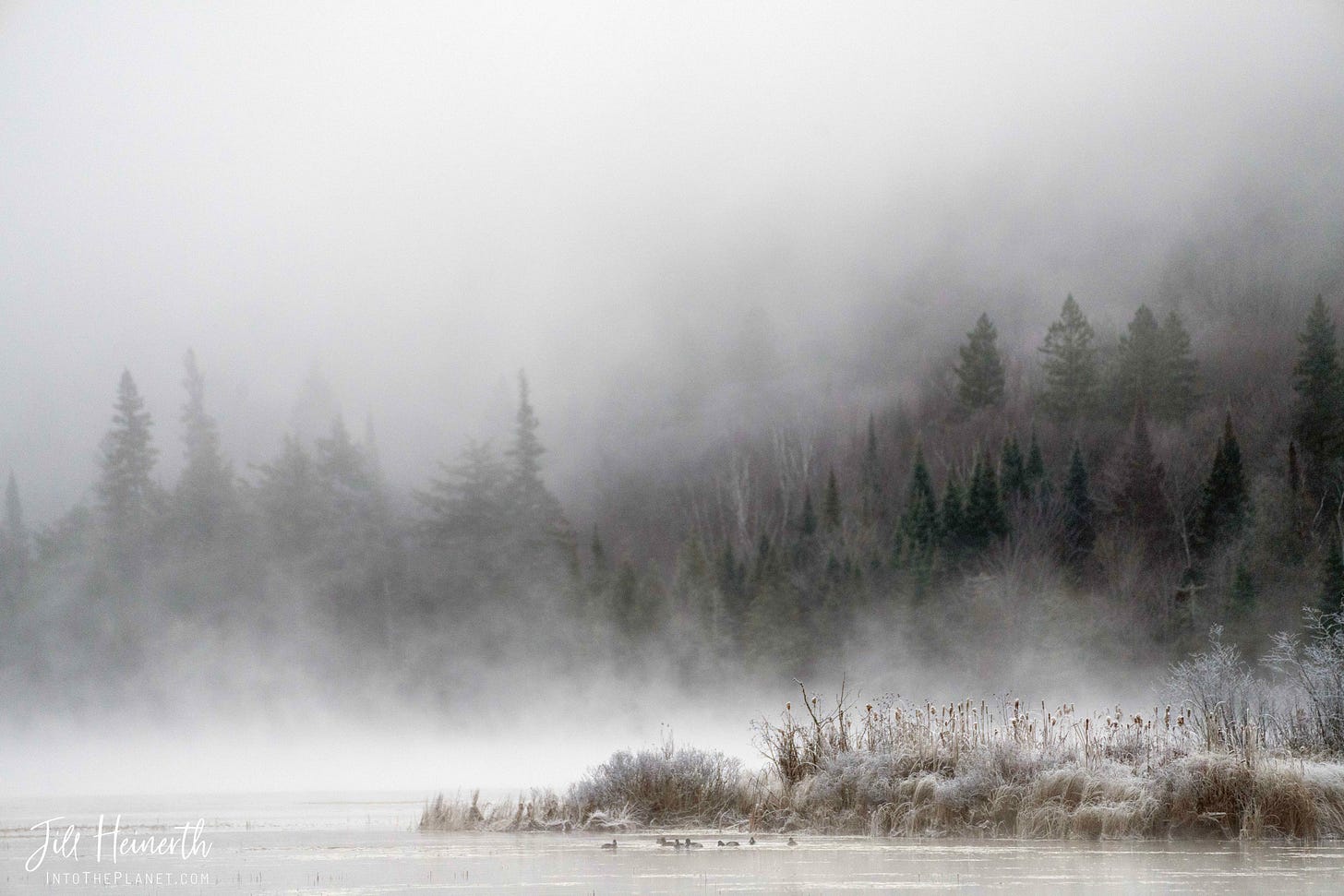This week, at the Royal Canadian Geographical Society’s annual Geographica Dinner, we celebrated our expedition, which located Sir Ernest Shackleton’s last ship, Quest.
Members of the Shackleton Quest Expedition were recognized at the annual RCGS Geographica dinner. L-R: David Mearns, Charlene Bearhead, Derek Lee, Jill Heinerth, Katherine Smalley, Geir Klover, Martin Brooks, Antoine Normandin, Capt. Levi Nippard, John Geiger, Alexandra Pope. Photo: Ben Powless/CanGeo
Shackleton, or “The Boss,” as he was known, was the sort of man you looked at and wondered what made him this way—like he was born out of iron and warmed by the fires of his faith. He had a compass inside him that always pointed to the polar regions, and he followed it through ice fields and across black waters without hesitation.
Now, if there’s any lesson that man can leave to us, it’s in the business of resilience. Picture a ship, the Endurance, wedged in the cold grip of the Antarctic ice, packed so tight it’d make a man wonder if God had closed a fist around it. But Shackleton didn’t give up; he found another way, surrendering his vessel to the ice and keeping his men alive. He spoke to them plainly with a voice low and full of something akin to the distant roll of thunder, saying they’d march across the ice and sail in a lifeboat or die trying. Shackleton didn’t make speeches. He lead by example. He shared his meagre rations equally, he slept on the same icy ground as his men, and he saved them—every last one.
He was a man who knew how to open his eyes to the challenge, take in every cold mile of the landscape before him, and not just push it from his mind but invite it and stare at it with clear eyes. Shackleton was no fool. He knew how to meet the unknown and steer into uncertainty. Most people would turn away from the crushing ice and endless night, but he demonstrated the kind of courage that inspires generations, the kind of courage that was rarely witnessed.
When Shackleton finally led his crew to safety, leaving no man behind, the world hailed him as a hero. But Shackleton didn’t dwell on it; he nodded and spoke of what the men had accomplished together. His crew, who had faced the darkest of nights and the harshest of conditions, emerged not as survivors, but as victors. And that is the mark of true courage: to see people through the darkest night and bring them home whole.
Ernest Shackleton taught us that resilience isn’t just holding on but moving forward, that courage is quiet, and that an open mind can light up even the bleakest corners. Ultimately, it’s not the magnitude of the journey that matters but the strength of the soul that faces it. Shackleton's story is a testament to the power of resilience, a quality that can empower us to overcome any challenge.
Jill served as the Shackleton Quest expedition’s official documentarian.
Canadian Geographic magazine’s Alexandra Pope has published a terrific online account of the Shackleton Quest Expedition. https://canadiangeographic.ca/articles/finding-quest/
Winter? Almost, Kinda…
When Jill and I moved back to her home province of Ontario, Canada, it quickly became apparent how much Canadians are aware of, and comment about “the weather.” Being a generally friendly people, in the small town where I live strangers will often nod, say hello, and mention the weather. “Nice day, eh?” “It’s a cold one, eh?” “Sweater weather’s coming, eh”? (Yes, in this part of Ontario many Canadians use the stereotypical “eh?” to punctuate statements). Funny thing is, most of the year is quite pleasant - but come November, and over the next four months, Winter does its very best to kill us. Attempting to maintain the basic activities of my daily life, over the past six years I have become an almost religious advocate of Merino wool base layers.
Jill smiles. I’m not smiling. My face has frozen with this expression.
Now, this year the last two weeks of October and the beginning of November have been unseasonably warm. Ottawa, the big Capital city 45 kilometers north of us, recorded the warmest October 31st Halloween temperatures in history. Last year the kids Trick or Treated in snow boots - this year in sneakers and plastic Crocs.
In spite of this welcome respite, the daylight hours are growing shorter and the low winter’s sun increases the glare on our truck’s dirty windshield. I’m trying to remain active, no matter the air temperature. Over the past few winters Jill has tried to get me up on cross-country skis, but the warranty on my knees expired a few years ago. I’ve compromised with snow shoes and winter hiking through beautiful white landscapes - dressed from head-to-toe in Merino. She loves the winter - I have learned to tolerate it. Jill writes winter poetry; I count the days until we leave on our Portuguese holiday.
”The dawn seeped thin and grey over the marsh, every blade and branch burdened under hoar frost that clung white and brittle. As winter falls, the world is stripped to silence except for the crunching of ice beneath my feet.” - Jill Heinerth
Thanks for spending some of your precious time with us. May you be toasty and warm, wherever you are! - Jill and Robert








I love learning about extraordinary people! They inspire and move the bar about what is possible! Even more amazing when those people are great leaders! I never even know anything about Shackleton until I read about him in “Into the Planet”! Beautiful writing about him!
Oh Robert! I was watching the weather last night and saw that cold front and snow coming on the north east side of the US and I am sure that will hit you too, so I thought about you! I traveled to Toronto in the winter when my mother in law was still alive and I remember how miserably cold I was all the time! No matter how many layers I put on! While I was born and raised in the mountains of Transylvania, I got whimpified in California for the last 25 years! I have a guest room in San Francisco Bay Area, if you need to thaw out for a bit!